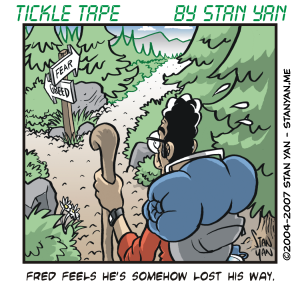Many trading days are full of chaos and stress. Sometimes we are in a bad mood, while at other times, the markets don’t seem to cooperate with our trading plans. It’s natural to crack under the pressure. But successful traders make trades in a carefree, relaxed, and focused manner. They don’t put unnecessary pressure on themselves. They don’t believe that they must succeed on any single trade but keep their eye on the big picture. They don’t believe they need to be right. They don’t impose their will on the market. And they don’t try to predict the future behaviour of the market. Instead, they objectively observe market conditions, make a detailed plan of attack, and let the market take them where it wants them to go.
They stay calm and relaxed, and ready to anticipate what will happen next. Successful traders enter “the zone” as Mark Douglas and Ari Kiev describe this peak performance mental state. Seasoned traders do not doubt or second-guess decisions. They freely enter and exit trades. This carefree approach to trading allows them to see and take advantage of trading opportunities. Managing stressful emotions is essential for enduring financial success.
It may be desirable to stay calm and rational, but even seasoned traders have difficulty handling their emotions at times. Take Russ, for example. In his Innerworth Master Interview, he confessed that he isn’t immune to emotional ups and downs: “It has been a little bit of a rocky road, to be honest. It’s a constant struggle. I would say I’m pretty good at it, but I would be lying to you if I said that I didn’t have my moments when I get upset.”
There are situations that are especially hard to manage. Russ describes a few of them: “I don’t like to lose. There are situations that are worse than others. Slippage is one of them. Say I have a designated exit point, forty-nine. But I can’t get out until forty-eight. You have an extra point of a flip. And you have a full lot. You’re maxed out. I find those situations emotionally challenging, particularly when I’ve already been having somewhat of a damaging day. A big gap is also hard to handle. You hold a position overnight and you get up the next day, and because of some news, it’s worth half of what it was.”
How does Russ cope with setbacks? He looks at his mood to see how well he’s coping. “In those tough situations, I just stop trading until I can look in the mirror to see if I can still smile. If I can’t look in the mirror and smile, I won’t trade until I can.” Stress and emotions, indeed, have a powerful impact on trading performance. It’s natural to feel you have to be perfect. It’s natural to want to do your best. But when stressful situations make you overly emotional, you might consider standing aside until things improve.
Trading in the zone requires intense concentration and focus, but it’s difficult to maintain this stance when you are overly emotional. It’s vital to stay calm and in control. The better you can handle your emotions, the more profits you’ll take home.


